LECTURES WITHIN THE PROGRAM OF ONLINE-PRECONGRESS 2020
June 26
Lecture «RISING FROM EXISTENTIAL CRISIS»
June26, 12.00 — 13.30
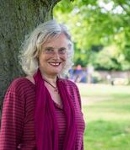 Emmy Van Deurzen (England) — philosopher and an existential psychotherapist, who has worked with people on transformative life events for 47 years. She is currently completing her eighteenth book, entitled Rising from Existential Crisis for PCCS books. She is Principal of the New School of Psychotherapy and Counselling at the Existential Academy in London.
Emmy Van Deurzen (England) — philosopher and an existential psychotherapist, who has worked with people on transformative life events for 47 years. She is currently completing her eighteenth book, entitled Rising from Existential Crisis for PCCS books. She is Principal of the New School of Psychotherapy and Counselling at the Existential Academy in London.
An existential crisis is a situation in which our entire existence and everything we used to take for granted is in the balance, so that we feel insecure and threatened. This affects all dimensions of life, at the physical, social, personal and spiritual levels. It means that our bodies are challenged, our relationships are changed, our sense of our self is altered, and our beliefs and values are shaken up. For most people this is a very difficult experience to encompass as it leads to a total revolution of our established patterns, routines and habits. It always involves a lot of loss and therefore leads to feelings of bereavement and sorrow as well as to experiences of confusion, fear, anger, doubt and panic.
In this presentation we shall consider how existential philosophers and therapists are able to make sense of such situations, be they caused by politics, society, personal choices or natural catastrophes. We shall explore the relationship between the shattering of our most reliable connections to the world and the loss of meaning. Then we shall consider how we can rise to such limit situations and personal challenges, finding ways to thrive instead of being destroyed by radical change, transforming and transcending our previous existence. Ultimately this will be about finding our existential courage.
Books that are relevant to this session:
Deurzen, E. van with Craig, E., Schneider K. Längle, A., Tantam, D. and du Plock, S. (2019) Wiley World Handbook for Existential Therapy, London: Wiley.
Deurzen, E. van and Arnold-Baker, C (2018) Existential Therapy: Distinctive Features, London: Routledge.
Deurzen, E. van and Adams, M. (2016) Skills in Existential Counselling and Psychotherapy, second edition, London: Sage. [2011]
Deurzen, E. van (2015) Paradox and Passion in Psychotherapy, second edition, London: Wiley [1998].
Lecture «THE FRAMEWORK CONCEPT OF MODERN PSYCHOTHERAPY»
June 26, 10.30 — 11.30
.jpg) Alexander Katkov (Russia) — Doctor of Medical Sciences, Rector of the International Institute of Social Psychotherapy in St. Petersburg (Russia), Vice-President of PPL Russia.
Alexander Katkov (Russia) — Doctor of Medical Sciences, Rector of the International Institute of Social Psychotherapy in St. Petersburg (Russia), Vice-President of PPL Russia.
The lecture material gives a functional definition of the framework concept of psychotherapy. The epistemological foundations of modern psychotherapy are described. The principles of classification of psychotherapy are given. The development strategies of modern psychotherapy are considered.
Lecture «PSYCHOTHERAPEUTIC PROSPECTIVE ON COVID-19 PANDEMIC»
June 26, 15.00 — 16.00
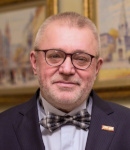 Victor Makarov (Russia) — doctor of medical sciences, MD, President of the All-Russian Professional Psychotherapeutic League and the National Self-Regulating Organization «Union of Psychotherapists and Psychologists», President elect of the Asian Federation of Psychotherapy, Vice-President June of the World Council for Psychotherapy, President of the IX World Congress for Psychotherapy, Head of the Department of Psychotherapy and Sexology of the Russian Medical Academy of Continuous Professional Education.
Victor Makarov (Russia) — doctor of medical sciences, MD, President of the All-Russian Professional Psychotherapeutic League and the National Self-Regulating Organization «Union of Psychotherapists and Psychologists», President elect of the Asian Federation of Psychotherapy, Vice-President June of the World Council for Psychotherapy, President of the IX World Congress for Psychotherapy, Head of the Department of Psychotherapy and Sexology of the Russian Medical Academy of Continuous Professional Education.
The lecture is dedicated to psychotherapeutic features of expectations from pandemic and the pandemic itself. We will view the new opportunities brought by the COVID-19 revolution and discuss the development of social psychotherapy and its increasing role in both problem solving and advancement of a person, family, group, society.
Lecture «SOME EXISTENTIAL-PHENOMENOLOGICAL REFLECTIONS ON LIMITATIONS AND POSSIBILITIES FOR ONLINE PSYCHOTHERAPY»
June 26, 16.30 — 18.00
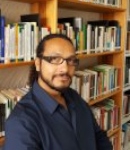 Yaqui Martinez Robles (Mexico) -Ph.D in Psychotherapy; Current President of the Latin American Association of Existential Psychotherapy.
Yaqui Martinez Robles (Mexico) -Ph.D in Psychotherapy; Current President of the Latin American Association of Existential Psychotherapy.
During times of crisis, such as during the pandemic caused by COVID-19, many therapists need to move our professional practice to electronic means in order to continue working, so that we can offer our services to those who need them.
What changes does this movement imply? What are the potentials? What difficulties?
Existential-Phenomenological reflection can help us answer these and other questions.
Lecture «FEELINGS IN THE FACE OF THE PANDEMIC IN ARGENTINA AND LATIN AMERICA»
June 26, 18.30 — 20.00
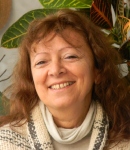 Susana Signorelli (Argentina) — Honorary President of the Latin American Association of Existential Psychotherapy, director of the Latin American Journal of Existential Psychology.
Susana Signorelli (Argentina) — Honorary President of the Latin American Association of Existential Psychotherapy, director of the Latin American Journal of Existential Psychology.
Lecture «INFLUENCE OF THE PANDEMIC ON THE PSYCHOEMOTIONAL STATE OF FAMILY MEMBERS DEPENDING ON THE MODEL OF ORDERING FAMILY RELATIONS»
June 26, 13.30 — 14.30
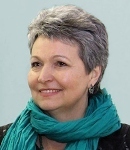 Nina Lavrova (Russia) — professor RAE, full member of PPL, psychotherapist of the unified register of the European Association of psychotherapy; chairman of the mediation Committee of PPL, head of the modality System family psychotherapy: Eastern version, accredited training personal psychotherapist-adviser, supervisor of PPL; certified teacher of the international level of the CPL; head of the Department of mediation and conflict resolution of the Institute of practical psychology Imaton, director of the Psychoanalytic center «Alliance».
Nina Lavrova (Russia) — professor RAE, full member of PPL, psychotherapist of the unified register of the European Association of psychotherapy; chairman of the mediation Committee of PPL, head of the modality System family psychotherapy: Eastern version, accredited training personal psychotherapist-adviser, supervisor of PPL; certified teacher of the international level of the CPL; head of the Department of mediation and conflict resolution of the Institute of practical psychology Imaton, director of the Psychoanalytic center «Alliance».
Self-isolation during the coronavirus pandemic has negative and positive consequences. The consequences associated with the regularity of family relations are characterized by mutual understanding, tolerance and readiness to work together. Emotional discord, provoking a family crisis, is the most acute negative consequence. The family ordering typology classifies a number of models according to the system-organizing factor. The lecture is devoted to the analysis of the consequences of self-isolation, taking into account the typology of family models. The application of practical techniques that help to overcome negative consequences is considered. Special attention is paid to the original technologies of the Eastern version of systemic family psychotherapy.
June 27
Lecture «EXISTENTIAL THERAPY IN THE CASES OF TRAUMA»
June 27, 10.00 — 11.30
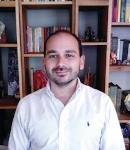 Ferhat Jak Icoz (Turkey) — chair of Association for Existential Psychotherapies in Turkey, founder and Clinical Director of Existential Academy of Istanbul.
Ferhat Jak Icoz (Turkey) — chair of Association for Existential Psychotherapies in Turkey, founder and Clinical Director of Existential Academy of Istanbul.
The modern and mainstream discourse on trauma is that it is a violent rupture in the flow of daily life in a way that life cannot be expected to go on on its presumed track. The same discourse offers «the way» out of trauma as processing it well up to a point in which the traumatic experience is well integrated into one’s self structure. The last few years have shown us repeatedly that traumatic experiences neither need to be physically violent nor need to disrupt daily life; one may well keep one’s functionality despite of psychological predicament. From an existential point of view, we construct our own worlds, our own realities. We do this because we find the nothingness that lays right beneath us terrifying. In line with this, we may be traumatised when this natural attitude (in comparison to phenomenological attitude as coined by Edmund Husserl) with all its bad-faith kind of certainties and securities is unsettled on a very ontological level, leaving us with a deep sense of nothingness with difficulty to hold on previous assumptions of safety. In this talk, I would like to tell the audience stories of clients experiencing this deeply unsettling sense, due to natural disasters, wars and torture. I would also like to offer various routes of interventions based on the phenomenological tradition in therapy. The main assumption that I would like to propose is that philosophical reviewing of our lives is not just for good times. Philosophy is not a luxury, but a necessity to hold onto what there is, to re-build a life after it is torn to pieces.
Lecture «EXISTENTIAL CHALLENGES DURING A PANDEMIC»
June 27, 12.00 — 13.30
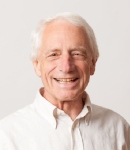 Alfried Laengle (Austria) — professor, founder of the stately approved training school of Existential-Analytical Psychotherapy (Gle-international).
Alfried Laengle (Austria) — professor, founder of the stately approved training school of Existential-Analytical Psychotherapy (Gle-international).
This time of quarantine is for some people critical, but for most just unfamiliar. What is existentially seen the specific challenge of such time?
The breakdown of daily routines, coustoms, and our experienced life produces insecurity — how can we deal with that? And when the insecurity grows up into anxiety — what to do then?
Also despair, meaninglessness, and loneliness occupy many people. Psychotherapists are asked to help them. But how can we do that in the midst of a pandemic?
Existential theory can help to understand better the underlying processes in the suffering of such an extraordinary time. And this provides us with specific means to help to people who are exposed to such strain and stress. Both, the theoretical understanding and the practical help for this crisis situation, insecurity, anxiety, and loneliness, will be the theme of this presentation.
Lecture «FREEDOM AND DESTINY: WHAT ARE WE DOING WITH OUR LIFE»
June 27, 14.00 — 14.45
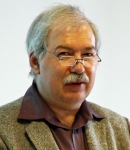 Dmitry Leontiev (Russia) — Doctor of Psychology, professor.
Dmitry Leontiev (Russia) — Doctor of Psychology, professor.
Our life is conditioned by many factors beyond our control, and this refers to everyone. How much can we influence our life ourselves? This is much more a matter of individual differences, and the most important of them is our belief in the possibility of influencing our own life. Without it we cannot help swimming with the stream.
Last months, due to COVID-19 pandemic and its consequences, the determination of our life increased, and the range of freedom narrowed. What follows from this for our living? How not to lose our resources of free self-determination in these challenging times?
Lecture «CHARACTERISTICS OF THE THERAPEUTIC OPERATING METHOD OF THE ITALIAN SCHOOL OF NEOEXISTENTIAL PSYCHOTHERAPY»
June 27, 15.30 — 17.00
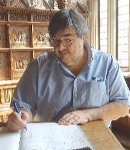 Gianfranco Buffardi (Italy) — рrofessor, founder and president of the Institute of Human and Existential Sciences in Naples.
Gianfranco Buffardi (Italy) — рrofessor, founder and president of the Institute of Human and Existential Sciences in Naples.
The Italian School of neoExistential Psychotherapy (SPEs) aims to combine the theoretical — philosophical premises of the existential approach with the principles of generative-transformational psycholinguistics in the interests of therapy support.
At a theoretical-clinical level it is based on Existential Logoanalysis, which derives from Daseinsanalyse (M. Heidegger and M. Boss), Existenz — Erhellung (K. Jaspers) and Existenzanalyse (V. E. Frankl).
The linguistic-operative level adopts and re-elaborates the principles of the communicative meta-model put forward by J. Grinder and R. Bandler, applying N. Chomsky’s generative-transformational grammar to psycholinguistics.
The specific goal is to offer help to whoever is experiencing (in various degrees and levels) an existential crisis through the stimulation and facilitation of an adequate clarification and restructuring of the personal reference systems ("interior maps") that underlie their attitude and inner life as well as their corresponding life style.
The lecture will deal with the methodological approach of the school.
Lecture «THE IMPACT OF THERAPEUTIC FACTORS AS NARRATED BY CLIENTS AMIDST CHAOS, DISEASE AND CONSTANT CHANGE»
June 27, 18.30 — 20.00
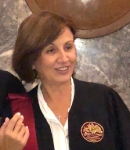 Katerina Zymnis-Georgalos (Greece)— member of the board of Federation for Existential Therapy in Europe, co-chair of the organizing committee of the 3rd World Existential Therapy Congress in Athens (2023), founding member, trainer and supervisor at The Hellenic Association for Existential Psychotherapy.
Katerina Zymnis-Georgalos (Greece)— member of the board of Federation for Existential Therapy in Europe, co-chair of the organizing committee of the 3rd World Existential Therapy Congress in Athens (2023), founding member, trainer and supervisor at The Hellenic Association for Existential Psychotherapy.
The lecture will bring forth the therapeutic factors leading to change as narrated by clients who have successfully completed psychotherapy. The presentation will focus on the impact that therapy has in a world of never ending change, chaos and possibility.
Lecture «EFFECTS OF SELF-ISOLATION DURING CORONAVIRUS INFECTION ON INTRA-FAMILY RELATIONSHIPS»
June 27, 19.00 — 20.00
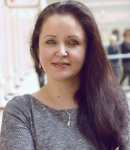 Natalia Golubeva (Russia) — clinical psychologist, family system psychotherapist, certified specialist in the existential humanistic psychotherapy, mediator, head of the Healthcare mediation working group in PPL, full member of PPL Russia, member of the East European Association of Existential Therapists.
Natalia Golubeva (Russia) — clinical psychologist, family system psychotherapist, certified specialist in the existential humanistic psychotherapy, mediator, head of the Healthcare mediation working group in PPL, full member of PPL Russia, member of the East European Association of Existential Therapists.
The lecture gives the analysis of interfamily relations during the rise of respiratory infection caused by the new virus from a coronavirus group. Epidemiology aspects of spreading the illness worldwide & in Russia are evaluated. Described are the main clinical symptoms of the aforementioned disease & its complications during the severe stages of illness. Effects of the massive media impact, of forceful isolation of Russian Federation population are accentuated & drawn to attention in results of their influence of interfamily relations. It is noted that the rate of family violence & conflicts has risen significantly during the so called self-isolation period. The research has been made on the reasons for serious changes in interpersonal & family relations which gives a ground for the development of the family conflicts prevention algorithm during the times of respiratory disease increase. Absence of the trustworthy information, of the sequential explanatory work on behalf of the governmental structures, severe & sudden limitations in the usual way of living all these very negatively influences nervous system of a human being thus leading to the long-term negative results with sometimes incurable consequences at the level of a basic social structure — family.
June 27
Lecture «THE FUTURE OF PSYCHOTHERAPY AND A DIALOGUE OF CULTURES»
June 28, 10.00 — 10.45
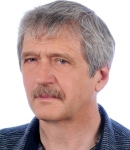 Semyon Yesselson (Russia) — board member of the Federation for Existential Therapy in Europe (FETE), board chairman of the International Institute for Existential Counseling (MIEK), head of Existential therapy modality at the National Umbrella Organization of Russia (OPPL).
Semyon Yesselson (Russia) — board member of the Federation for Existential Therapy in Europe (FETE), board chairman of the International Institute for Existential Counseling (MIEK), head of Existential therapy modality at the National Umbrella Organization of Russia (OPPL).
Our modern civilization, despite the competition of different countries and various social, economic and political systems, is taking on an increasingly explicit form of a global technological civilization, which is perpetuated and dominated by the worldview, in line with Buber’s «I-It» formula.
All the key futurological concepts of the present day fit under the current trends associated with the existence of the «I-It» world.
Meanwhile, psychotherapy, from its very inception, has resulted from medical practitioners’ search for ways of assistance to their patients with various mental and behavioral disorders. Depending upon which philosophical or religious worldviews they adhered to, specific ways of assistance were being invented. Thus, this gave rise to the neo-Kantian, neo-Marxist, neo-Zen, neo-Taoist, post-modern practices of treatment that were united under one title — psychotherapy.
The present-day «I-It» civilization is trying to shape psychotherapy to its own image by narrowing it down to a set of tricks, techniques and technologies to affect the mind and the behavior of people.
The transition of this civilization into the Information Age is not changing anything in those trends, but makes them even worse.
The lecture discusses the prospects for the existence and the development of psychotherapy, in spite of the dominating trends of the «I-It» civilization. It is being proposed that psychotherapy can play the role of «Old Mole», preparing the civilization shift towards a dialogue of cultures.
Lecture «COVID-19. HUMAN MENTAL FUNCTIONING UNDER THE CONDITIONS OF THE STRESS PANDEMIC»
June 28, 18.30 — 20.00
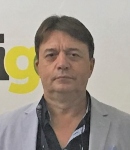 Andrey Strelchenko (Russia) - Doctor of Medical Sciences, full member of the Professional Psychotherapeutic League, psychotherapist of the Unified Register of Psychotherapists in Europe, Official representative of the central council of the Professional psychotherapeutic league in Latin America.
Andrey Strelchenko (Russia) - Doctor of Medical Sciences, full member of the Professional Psychotherapeutic League, psychotherapist of the Unified Register of Psychotherapists in Europe, Official representative of the central council of the Professional psychotherapeutic league in Latin America.
Vera Odyn (Russia) - doctor of the highest category, Honored Health Worker of Russia.
The lecture discusses the mechanisms of the functioning of the psyche under prolonged stress caused by the pandemic of the coronavirus, as well as the factors underlying the increase in stress resistance. Practical recommendations and techniques of mental self-regulation are given.
CORONAFORUM: LET'S TALK ABOUT IT
June 28, 12.30 — 14.30
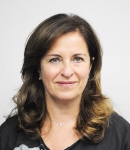 Paola Pomponi (Italy — UK) — chair of the Society for Existential Analysis (UK).
Paola Pomponi (Italy — UK) — chair of the Society for Existential Analysis (UK).
Reflections of the changes in psychotherapeutic practice during lockdown.
Loss and gain, form an Existential point of view.
June 29
Lecture-interview «PSYCHOTERAPY ON-LINE. POSSIBILITIES AND LIMITATIONS»
June 29, 13.15 — 14.15
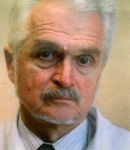 Aleksander Alexeichik (Lithuania) — Honorary Doctor of Lithuania, Chief of the Department of Borderline Disorders of the Vilnius Mental Health Centre.
Aleksander Alexeichik (Lithuania) — Honorary Doctor of Lithuania, Chief of the Department of Borderline Disorders of the Vilnius Mental Health Centre.
Interviewers: S. Yesselson (Russia), A. Lelyk (Ukraine)
Our Psychotherapeutic Department was the first psychotherapeutic department in a psychoneurological hospital in the Soviet Union (at the time it was called Republican Psychoneurological Hospital, nowadays it is called Vilnius Centre of Psychological Health. Over the past 30 years the department has welcomed more than 10000 patients.
This year, due to the lockdown caused by the COVID19 pandemic, the department was closed and work with patients was carried out online. For the past 42 years there took place the All-Union (and later the International) Psychotherapy and Clinical Psychology Seminar, founded in this hospital. This year we carried out the 43th seminar online for the first time.
I’ve been involved in medicine for almost 60 years and I am used to the idea that everything new has to pass clinical tests before coming into practice, and these tests often take years. And only after this the new medical method or the new medicine gains integrity — indications, contraindications, dosage, methods and warnings of careful usage are clarified. But first impressions are always important. They give a focus to further research and direction of thought.
In this lecture there will be presented thoughts about online psychotherapy of a person who tried it for the first time in April 2020.
